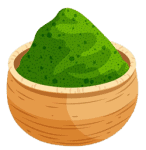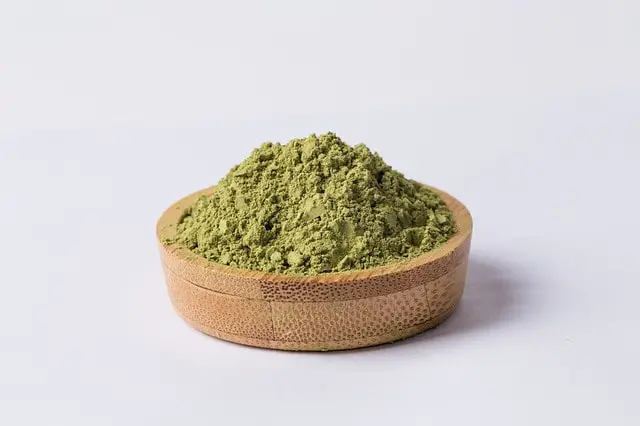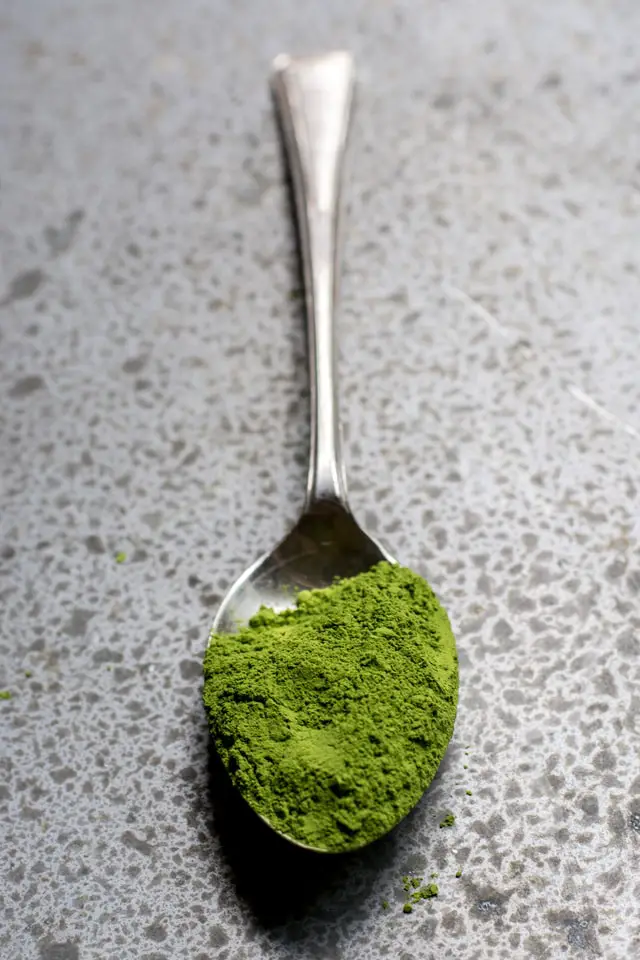
Matcha went mainstream a few years ago.
Despite this, there is a great deal of confusion regarding this powder.
For instance, were you aware that there are different matcha grades?
Do you know how to distinguish between them?
In case you are still trying to sort out how to buy quality matcha, check out this post.
It will give you the lowdown on everything that you need to know about the various quality categories.
Contents
Since we are talking about quality, it is first important to distinguish between green tea powder and matcha.
While they are both derived from the Camellia sinensis plant, there are numerous differences.
For one thing, true matcha powder is shade grown – green tea powder is sun grown.
Due to this, matcha has a sprightlier taste and more nutrients to boot.
The easiest way to distinguish between these two kinds is by the color.
Matcha is a bright green hue, while the green tea powder has a drab olive color to it.

What many people aren’t aware of is the fact that matcha is grown in regions around the world.
However, most commonly, matcha comes from either Japan or China.
These two kinds of matcha vary quite a bit, though.
To begin with, the soils that the tea trees are grown in can vary.
This, in turn, has an impact on the taste and health benefits of matcha.
There is also the fact that Japanese growers take more care with how the matcha is grown and processed.
In China, though, the trees are often grown in the sun and the leaves are pan-fried rather than dried.
Long story short – Japanese matcha is far superior to the Chinese version.
Related Article
What Does Matcha Taste Like?
Matcha powder grades are a way of distinguishing between matcha quality.
As with any tea, not all matcha powders – even Japanese matcha – are grown and processed in the same manner.
Due to this, the powders can vary in appearance, taste, and even health values as well.
For instance, a lower grade will not be as pleasant tasting or as frothy as a higher grade powder.
It should be noted, however, that these grades aren’t regulated in the marketplace.
Thus, you do have to be careful about the kind of powder that you are buying.

There are technically only two recognized grades – ceremonial and culinary.
However, there are some grades that can be fitted in between.
Not all companies or brands will recognize these “in between” grades.
Here is a closer look at each grade:
This is a high grade matcha, the very best.
These leaves are picked at a very early point in the harvest.
Also, only the most tender leaves are chosen.
As such, this grade produces a brighter green matcha, with the highest possible health benefits.
This is also the most pleasant tasting matcha as well.
The powder is smooth and fine, producing a frothy and sweet drink.
This isn’t such a well-known grade.
There isn’t also too much distinction as to what makes this grade special.
Rather, the premium grade is seen as a middle point between ceremonial and culinary grade matcha.
Sometimes known as ingredient grade matcha, this is on the lower-end of the quality scale.
Now, this doesn’t mean that it is bad quality.
Rather, this matcha is better suited to be suited in baking or as a food coloring rather than in your drink.
Understand, the leaves used for culinary grade matcha are picked later on.
As a result, they have lost some of their nutrients, color, and flavor.
This means that you end up with a duller color and bitter flavor.
Because of its name, there is some confusion about whether or not it is safe or possible to drink culinary matcha.
You absolutely can make a drink using culinary matcha.
The only issue is that it will not taste as good as the ceremonial matcha.
Now the question remains: how do you select the best Japanese matcha?
Well, as mentioned, there is very little regulation and oversight involved with matcha grades.
Due to this, it can be difficult to ascertain whether you are getting the very best option.
This is why it is important to always buy from high-end or well-known brands.
These may be more expensive, but there is a better chance of you receiving the quality that you are paying for.
At the same time, you should train your eyes and taste buds to determine the quality of your matcha.
To begin with, ceremonial matcha will be a bright, vibrant green – much like the young leaves it is made up of.
Even the best culinary matcha will not be able to match this hue.
The taste can tell you a lot as well.
Good quality matcha has a very delicate taste to it.
It borders on sweet and there will be no overly grassy taste to it at all.
If you are a newcomer to matcha, you may not want to splurge on a very expensive brand yet.
Nevertheless, you should still start off with a good quality ceremonial grade tea.
This will allow you to explore the most authentic flavors of matcha and let you decide whether you like it or not.
Buy a smaller quantity so that it will not go to waste if you aren’t particularly fond of the flavor.
You should also be open to experimentation. Just because one brand didn’t work for you doesn’t mean a different one won’t do the trick.
This is what you need to know about the various matcha grades. As you can see, the system in a bit more complex than you may have imagined.
If you enjoyed this post, make sure to head over to our Pinterest page. We have tons of posts on matcha, green tea, and everything in between.
